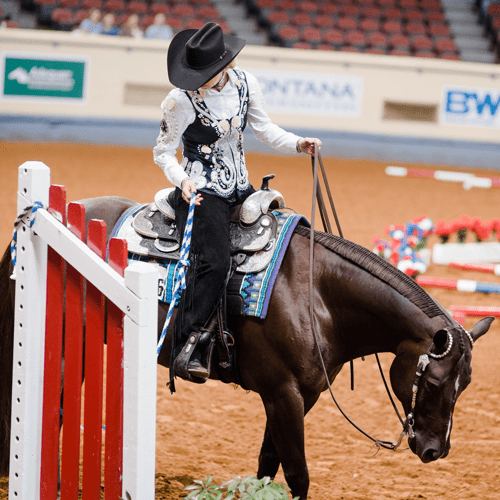It is the nature of competitive sports that things don’t always go our way. When you have a less than stellar day in the show pen, it can be tough to shake off the disappointment and bounce back mentally.
Your approach to handling losses and setbacks is important, since it sets the tone for future competitions. Top competitors have a mental game plan for those days when things don’t go according to plan. They understand that a focused mental recovery plan can keep them moving forward and prevent slumps.
After a loss or less than ideal competition, it’s important to take a few minutes in private to process the emotions that go along with a loss. It’s natural to be upset, disappointed or frustrated. However, it’s vital that you set a time limit on these feelings—10 to 15 minutes at most. Allow yourself to process the setback. Then, it’s time to switch gears.
We can choose where to put our focus at any point. You just need a systematic approach. To recover from a setback, you need to refocus your thinking in a forward-moving and positive way. Here’s a simple plan to refocus your mental game after a setback:
1. Assess the situation with some simple questions. You might ask yourself:
“Am I approaching this situation with the best possible attitude?
“Can I find something good in this event? What IS working?”
“What do I need to learn from this?”
2. Do a mental replay
Re-ride the class in your mind, erasing any mistakes and seeing the performance that you wanted to have. This is a vital—and often overlooked—technique used by top competitors. Replaying a poor performance only reinforces a negative cognitive template, priming your body to repeat the mistake in the future.
3. Keep a competition journal and review it after every class
In your competition journal, you should record details such as your sleep pattern the night before your class, what you ate for breakfast, and your mental and physical warmup routine. Also include notes about how you warmed up your horse and what tack and equipment you used.
As you log this information over time, you will begin to notice patterns. Did you hit Starbucks for a latte and a muffin instead of your usual OJ and boiled egg on the morning of your class? Or maybe you do better with a detailed pre-ride visualization the night before a class, and some ratio breathing exercises right before you hit the in-gate.
Working through this process helps to reset your mind for success, rather than leaving it focused on the negative. You can find something positive in most situations if you observe carefully and commit yourself to discovering it.








